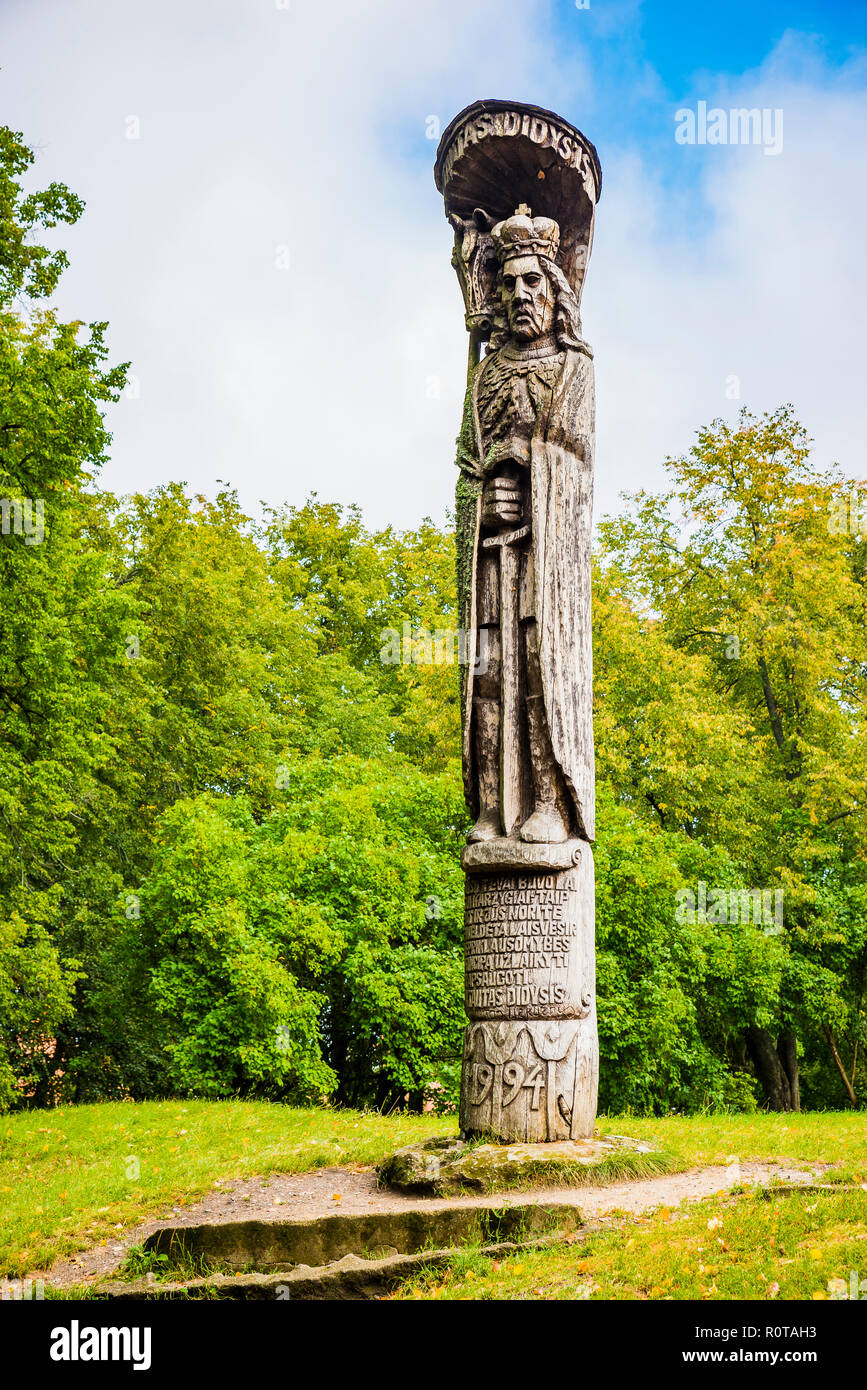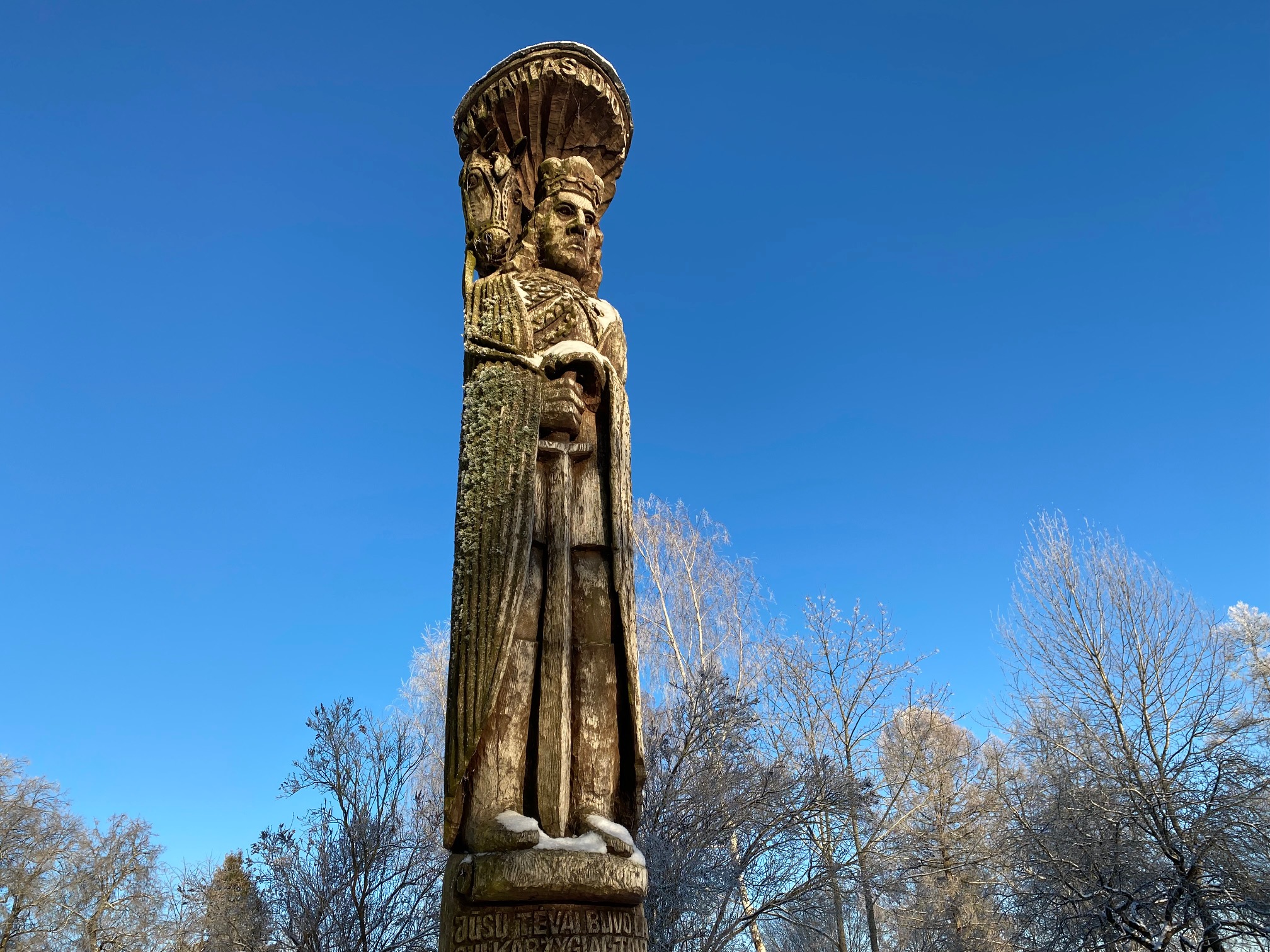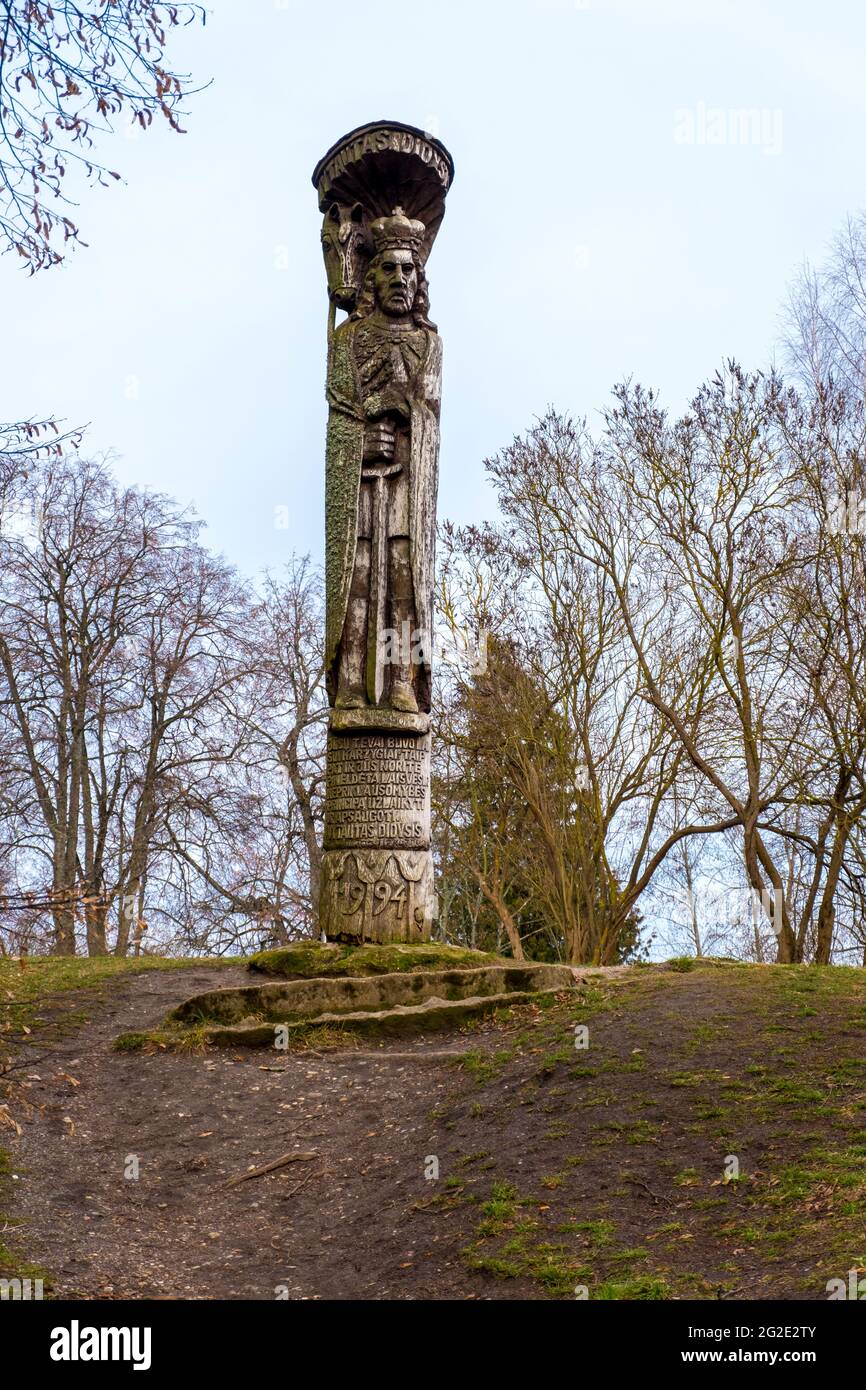
When the name **Lithuania** comes to mind, one figure frequently emerges as a symbol of its historical significance: **Vytautas the Great**. Born in the year 1350, Vytautas was not just a ruler; he was a transformative leader who played an instrumental role in defining the identity and strength of the Lithuanian state. His reign marked a pivotal period in the nation’s history, characterized by both remarkable achievements and formidable challenges. But what were the key actions and decisions that contributed to his legendary status? In this exploration, we will delve into the life of Vytautas, examining his military conquests, political strategies, and the enduring legacy he established, which continues to resonate in Lithuania today. Through his story, we can gain a deeper understanding of the complexities of leadership and the impact one individual can have on the course of a nation’s history.
The Early Years of Vytautas

Born into Conflict
Vytautas entered the world during a time of significant **political turmoil** and unrest. His father, **Kęstutis**, found himself deeply entrenched in a bitter and relentless struggle for dominance over Lithuania, a conflict that was primarily against his own brother, **Algirdas**. This intense family rivalry not only shaped the political landscape of the region but also laid the groundwork for Vytautas’s own future endeavors and battles for authority. Growing up amidst such discord, Vytautas was destined to inherit not only his father’s legacy but also the complexities and challenges that came with it, setting the stage for a life marked by conflict and ambition.
Captivity and Escape
In the year 1382, a pivotal moment occurred when Vytautas and his father were captured by **Jogaila**, the son of Algirdas. This event was catastrophic for Kęstutis, who met a tragic fate as he was murdered while in captivity. However, Vytautas’s story took a different turn; he managed to escape from the clutches of his captors. This daring escape was not merely a personal triumph for Vytautas; it symbolized the beginning of his relentless quest for power and influence. It marked the start of a new chapter in his life, one filled with ambition and the desire to reclaim his family’s honor and establish his own legacy in the tumultuous political arena of Lithuania.
Consolidating Power

### Making Peace with Jogaila
Following his daring escape, Vytautas recognized the necessity of establishing a peaceful relationship with Jogaila. In an unexpected turn of events, the two leaders managed to negotiate a settlement that resulted in the restoration of Vytautas’s ancestral lands. This agreement was not merely a matter of land; it was a pivotal moment for Vytautas, as it provided him with the opportunity to strengthen and consolidate his power within the region. By reclaiming his family’s territories, he could bolster his influence and secure his position, which was essential for his future ambitions.
### The Marriage of Jogaila
In a calculated political maneuver, Jogaila took a significant step by marrying **Jadwiga**, the young queen of Poland, thereby ascending to the title of **King of Poland**. This marriage was not just a personal union; it was a strategic alliance that intertwined the destinies of Lithuania and Poland. The implications of this union were profound, as it laid the groundwork for future collaborations as well as potential conflicts between the two nations. The marriage symbolized a new era of cooperation, but it also foreshadowed the complexities that would arise as both kingdoms navigated their intertwined fates in the years to come.
The Struggle for Supremacy

Power Struggles with Jogaila
Even in the midst of a fragile peace, the relationship between Vytautas and Jogaila was far from amicable. Their interactions were characterized by a series of intense power struggles, as both leaders vied for dominance over Lithuania. Vytautas, in particular, often sought alliances with the **Teutonic Order**, a move that underscored the complexity of their rivalry. This situation exemplified the age-old strategy of “keeping your friends close, but your enemies closer,” as both leaders navigated the treacherous waters of political maneuvering. Their ongoing conflict was not merely a personal feud; it reflected deeper tensions within the region, as each sought to consolidate power and influence.
Becoming Vice Regent
In a significant turn of events, Jogaila eventually extended an olive branch to Vytautas by offering him the position of **vice regent** over all of Lithuania. This gesture was a notable recognition of Vytautas’s increasing power and influence within the political landscape. The formalization of this agreement took place in August 1392, marking a pivotal moment in their relationship. While the title of ruler was not bestowed upon Vytautas, the arrangement effectively positioned him as the supreme leader of Lithuania. This development not only altered the dynamics between the two leaders but also had lasting implications for the governance of the region, as Vytautas began to wield significant authority under the guise of vice regency.
Military Campaigns and Challenges

Defeating Rebellious Nobles
Vytautas wasted no time in asserting his authority. He began by subduing rebellious nobles who threatened his rule. Think of it as cleaning house—he needed to ensure loyalty among his ranks.
The Battle of Vorskla River
However, not all battles were won. In 1399, Vytautas faced a significant defeat against the **Mongols** at the **Battle of Vorskla River**. This loss was a setback but didn’t deter his ambitions.
The Union of Poland and Lithuania

Establishing a Treaty
In January 1401, Vytautas and Jogaila proclaimed a union between **Poland and Lithuania**. This treaty was a game-changer, ensuring mutual support in the event of Vytautas’s death. It was like a safety net for both leaders, solidifying their alliance.
Wars with the Teutonic Order
With the union in place, Vytautas and Jogaila turned their attention to the **Teutonic Order**. They faced a series of wars, with Vytautas determined to drive them out of Lithuania. It was a classic David vs. Goliath scenario, and Vytautas was ready to fight.
The Battle of Grunwald

A Turning Point in History
The culmination of their efforts came on July 15, 1410, during the **Battle of Grunwald** (also known as Tannenberg). This battle was monumental, marking a decisive victory for the Polish-Lithuanian forces against the Teutonic Knights. It was a turning point that shattered German supremacy in the **Baltic region**.
The Aftermath of Victory
Following this victory, Vytautas became a celebrated hero. The Polish-Lithuanian alliance was now seen as a formidable power in Europe. It was like a phoenix rising from the ashes, with Vytautas at the helm.
Vytautas’s Later Years

The Claim to the Crown
In 1429, Vytautas revived his claim to the **Lithuanian crown**. Jogaila, though reluctant, agreed to his cousin’s coronation. This was a significant moment, as it symbolized Vytautas’s ultimate recognition as a leader.
The Untimely Death
Tragically, before the coronation could take place, Vytautas passed away on October 27, 1430. His death marked the end of an era, leaving a legacy that would shape Lithuania for generations to come.
Legacy of Vytautas the Great

A National Hero
Vytautas the Great is remembered as a national hero in Lithuania. His efforts to consolidate power, defend against external threats, and foster a sense of national identity have left an indelible mark on the country’s history.
Influence on Modern Lithuania
Today, Vytautas is celebrated not just as a historical figure but as a symbol of **Lithuanian resilience**. His story inspires pride and unity among Lithuanians, reminding them of their rich heritage and the importance of strong leadership.

In the grand tapestry of history, Vytautas the Great stands out as a pivotal figure who shaped the destiny of Lithuania. His life was a blend of **triumphs and tribulations**, and his legacy continues to resonate today. So, the next time you think of Lithuania, remember the name Vytautas—a leader who dared to dream big and fought fiercely for his nation.
| Year | Event |
|---|---|
| 1350 | Birth of Vytautas |
| 1382 | Captured by Jogaila |
| 1392 | Becomes Vice Regent |
| 1399 | Defeated at Vorskla River |
| 1410 | Victory at Grunwald |
| 1430 | Death of Vytautas |

